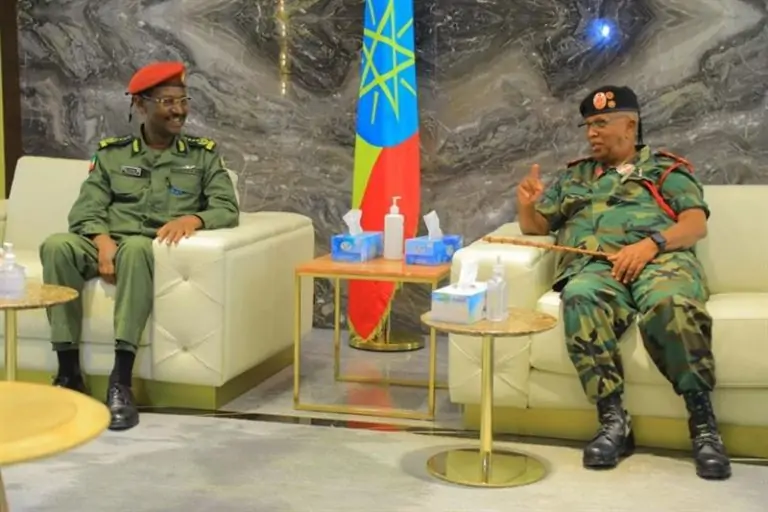

ethiopia somaliland military cooperation raises horn of africa tensions
The recent discussions between Ethiopia and Somaliland regarding military cooperation have heightened tensions in the already volatile Horn of Africa. The announcement of these talks came on the heels of a controversial pact allowing Ethiopia access to the Red Sea through Somaliland, a move strongly opposed by Somalia. The central government in Mogadishu has referred to the memorandum of understanding (MoU) as an act of “aggression,” raising concerns and calls for respect for Somalia’s sovereignty.
While Ethiopia’s army chief engaged in talks with his Somaliland counterpart, President Hassan Sheikh Mohamud of Somalia embarked on a trip to Eritrea. This move holds significance given Eritrea’s proximity to Somalia and signals an attempt by Somalia to garner international support against the Ethiopia-Somaliland agreement. Eritrea, often viewed as an isolated regime, hosts discussions with Somalia aimed at strengthening ties, raising curiosity about potential implications for the region’s dynamics.
Given Ethiopia’s reliance on the Red Sea, Prime Minister Abiy Ahmed has emphasized the country’s long-standing goal of obtaining coastal access. However, this pursuit has triggered apprehension among neighboring countries, especially with the recent agreement granting Ethiopia maritime services and a military facility in Somaliland. Djibouti, chairing the regional organization IGAD, expresses concern over the escalating tensions and advocates for dialogue between Somalia and Ethiopia to de-escalate the situation.
The agreement between Ethiopia and Somaliland underscores the complexity of geopolitical dynamics in the Horn of Africa. Somaliland’s declaration of independence in 1991 remains unrecognized internationally, creating a contentious backdrop for deals such as this one. Mogadishu’s firm opposition further intensifies the diplomatic rift, drawing attention from global stakeholders like the United States and the African Union, both advocating for peace and respect for Somalia’s territorial integrity.
Ethiopia’s historical ties to Eritrea, marked by tensions during the Tigray conflict, add depth to the current situation. Eritrea’s role in supporting Ethiopian forces during the conflict raised eyebrows in the region. Prime Minister Abiy Ahmed’s assertion that Ethiopia would not invade neighboring countries attempts to reassure, but the persistence in seeking port access underscores Ethiopia’s strategic ambitions.
The signed agreement between Ethiopia and Somaliland grants Ethiopia crucial access to a coastline, ending decades of landlocked status resulting from Eritrea’s secession. With a lease of twenty kilometers of coastline for fifty years, Ethiopia gains not only commercial maritime services but also a military foothold in Somaliland. This development reshapes regional power dynamics, prompting concerns from Djibouti and international actors.
South African President Cyril Ramaphosa defended his nation against claims of white discrimination made by tech magnate Elon Musk. After…
Hilton launched Signia by Hilton for its first appearance in Egypt and Africa through its hotel expansions. These hotels at…
UNICEF reported that, nearly 2900 people died of cholera across Eastern and Southern African countries while children suffer most greatly…
Enza, based in the United Arab Emirates, obtained $6.75 million in initial investment funding from Algebra Ventures and Quona Capital.…
US Secretary of State Marco Rubio ordered South African Ambassador Ebrahim Rasool to leave America by March 21 because he…
Early 2025 ends with IPL fever in India and cricket fans receive good news of an international schedule full of…
This website uses cookies.